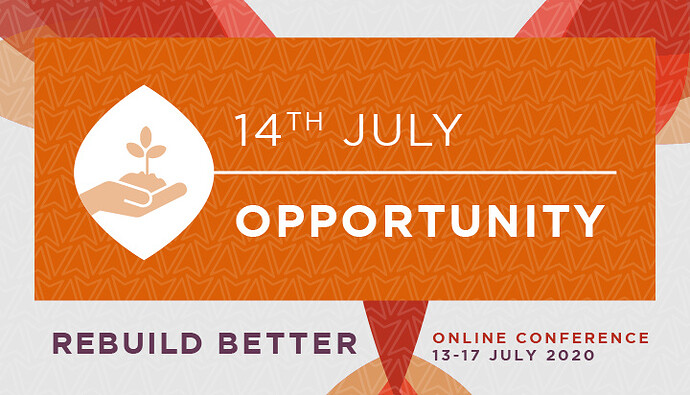Live Panel
Tuesday 14th July 2020, 2pm -3pm BST
Panel
- Sarah Bratton, Head of Sustainability, North America, Schroders
- Davide Fiedler, Manager, Social Impact, World Business Council for Sustainable Development
- Neil Gaught, Author, CORE: How a Single Organizing Idea Can Change Business For Good
- Amalia Johnsson, Head of Programmes, Hand in Hand International
- Samantha Lacey, Job Quality Lead, CDC Group
- Flynn Lebus, Gender Equity Practice Co-Lead, FSG
- Ashleigh Owens, Senior Advisor, Shift Project
- Eleanor Paton, Senior Policy Officer, The International Rescue Committee
- Matt Ripley, Chief Technical Adviser, International Labour Organization
- Wingham Rowan, Founder and Chief Exec., MM4A non-profit Ltd.
- Merten Sievers, Value Chain Development and Entrepreneurship Coordinator, International Labour Organization
- Alison Ward, CEO, CottonConnect
- Richard Gilbert, Senior Adviser, Business Fights Poverty
Background
Building back better by mainstreaming “win-win” business models that work for lead firms and workers
As consensus builds around the need to “build back better” post-COVID-19, a priority for businesses and policy makers is to accelerate changes to business models to ensure economic value is more equitably distributed with workers and they do more to drive decent work outcomes.
Making decent work outcomes more integral to business models can deliver change for workers in three key areas:
-
Job security - generating secure and quality jobs, i.e. predicted [MR2] hours and social security coverage.
-
Equality - supporting equal opportunities and treatment, and worker voice.
-
Health and well-being - promoting a safe work environment, worker development and well-being, i.e. work life balance.
Business Fights Poverty has joined forces with ILO to identify good examples of business models for decent work that create commercial value for a lead firm while driving decent work outcomes for workers. Both organisations are seeking to better understand what business models for decent work look like, what challenges lead firms face in scaling them up and how to mainstream them across the core business and value chains. Examples and learnings will be consolidated into a short, practical guide for lead firms and their development partners.
Questions
This online written discussion will be structured around the following three questions:
-
What are some good examples of business models that create commercial value for lead firms while driving better job security, equality, health and well-being for workers?
-
What are some of the challenges lead firms face in promoting business models for decent work?
-
How can we overcome these challenges and mainstream business models for decent work? What are the key leverage points within lead companies and in the policy environment to enable business models for decent work to scale?
Format
This is a text-based discussion. There will be no video or audio. Please post your comments below. After the live session, this discussion will remain open, so please do continue to share your insights. To receive a free summary of this discussion afterwards, register here
How to participate
To post a comment, you will need to sign in / sign up to the Business Fights Poverty Discussion Forum:
If you are already a member of the Business Fights Poverty online community, click “Log In” at the top right of the page and then enter your details. If you have not logged into our new community platform, you will have to reset your password here
If you are not already a member of the Business Fights Poverty online community, you will need to sign up here . Once you are have joined the community, you can return to this discussion page, click “Log In” at the top right of the page and then enter your details.
